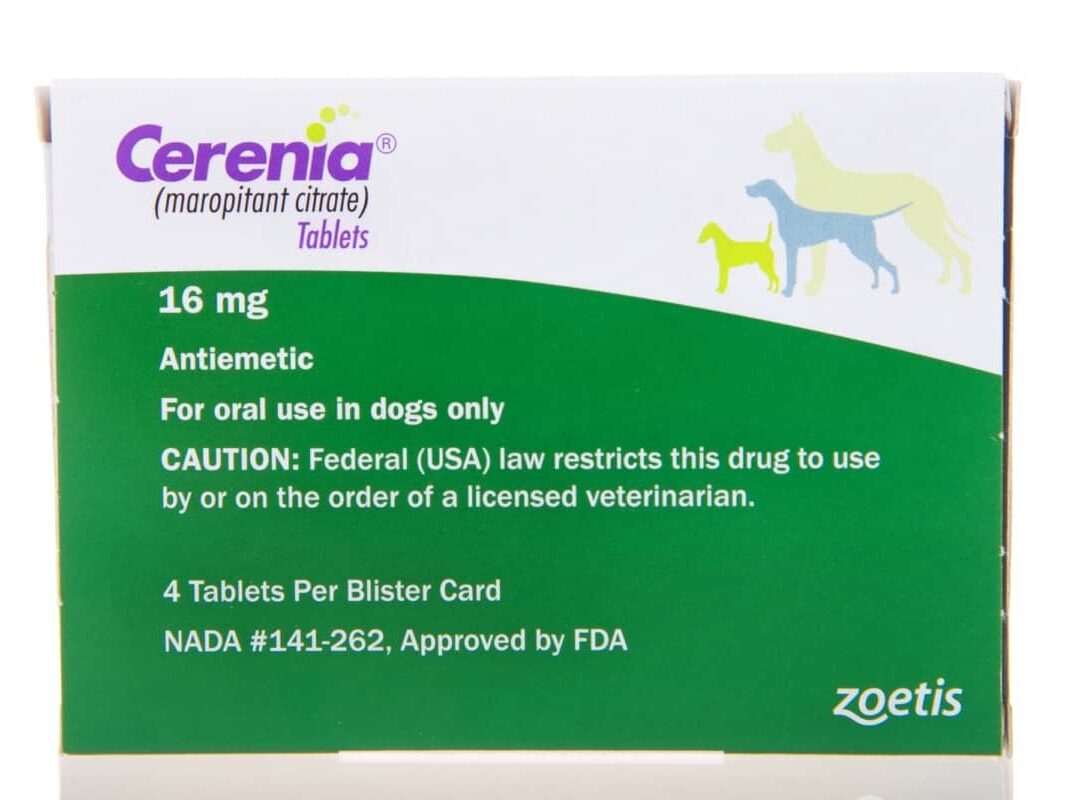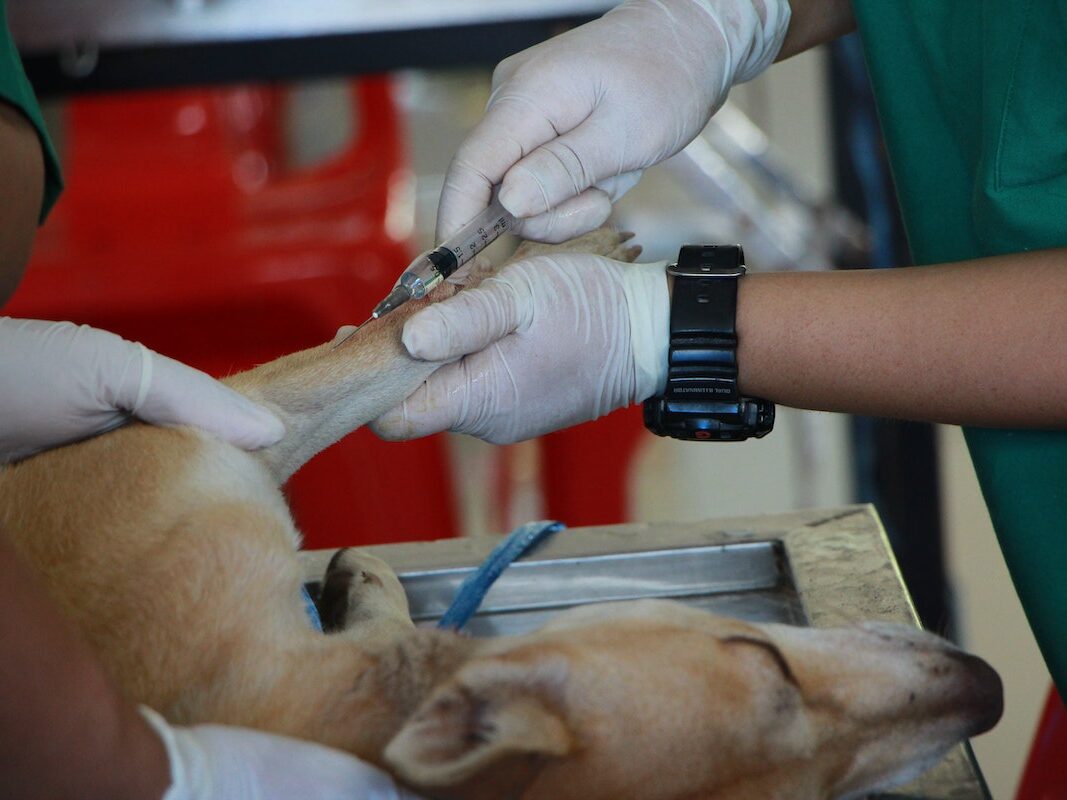When it comes to our canine companions, ensuring their well-being is our utmost priority. From wagging tails to affectionate licks, their presence enriches our lives. Yet, the world of pet health can be complex and occasionally perplexing. One topic that often raises questions is Cerenia—a medication used to address various gastrointestinal issues in dogs. But how does Cerenia work, and could it ever pose a threat to our beloved furry friends?

In this article, we embark on a journey of understanding, delving into the intricate mechanisms that underlie Cerenia’s action. We aim to unravel the mysteries surrounding its effects, benefits, potential risks, and the careful considerations that come with its usage. By shedding light on how Cerenia interacts with a dog’s body, we equip pet owners with the knowledge needed to make informed decisions regarding their furry companions’ health. So, let’s explore the world of Cerenia, demystify its impact, and ensure that our dogs continue to enjoy a happy, healthy life.
Table of Contents
- How Cerenia Can Kill a Dog
- Recognizing and Treating Cerenia Toxicity in Dogs
- Alternatives to Cerenia for Dogs:
- FAQs
- 1. Is CBD safe for dogs?
- 2. Can I give my dog Benadryl or Dramamine without consulting a vet?
- 3. Can I use ginger as a long-term solution for my dog’s nausea?
- 4. Can I combine different alternatives for my dog’s nausea?
- 5. What if my dog’s symptoms persist?
- 6. How do I choose the best alternative for my dog?
- Conclusion
How Cerenia Can Kill a Dog
Cerenia can kill a dog in a variety of ways, depending on the amount, duration, mode of administration, and the dog’s unique susceptibility. Cerenia can result in a variety of deaths, including: [1]
Overdose
Cerenia can induce overdose if the dog receives more than the appropriate dose, either accidentally or on purpose. Cerenia is suggested for dogs at a dose of 2 mg/kg (0.9 mg/lb) once daily for up to five days to treat acute vomiting and 8 mg/kg (3.6 mg/lb) once daily for up to two days to prevent motion sickness.

Cerenia overdose symptoms in dogs may include vomiting, diarrhea, lethargy, trouble breathing, loss of appetite, increased body temperature , muscle tremors, seizures, and coma. If suspect that your dog has ingested too much cerenia , you should contact your veterinarian or an emergency animal clinic immediately.
Pre-existing medical conditions:
Cerenia can also be harmful to dogs that have pre-existing medical conditions that may affect their liver, kidney, heart, or blood functions. Cerenia is processed by the liver and eliminated by the kidneys, therefore any impairment in these organs can decrease drug clearance and elimination.
This can result in medication buildup and an increased risk of toxicity. Cerenia can also influence the heart rate and blood pressure of dogs, making any cardiac or vascular disorders worse. As a result, before administering Cerenia to your dog, you should inform your veterinarian about any medical history or medications your dog is currently taking.
Interaction with other medications:
Cerenia can also interact with other medications that your dog may be taking, either enhancing or reducing their effects. Antacids, anti-inflammatory medicines, antihistamines, antidepressants, anticonvulsants, opioids, sedatives, tranquilizers, and steroids are examples of pharmaceuticals that can interact with Cerenia.
These combinations can result in bleeding, ulceration, sedation, agitation, disorientation, seizures, respiratory depression, cardiac arrhythmias, and death. As a result, you should always consult your veterinarian before administering any other drugs to your dog in addition to Cerenia.
Recognizing and Treating Cerenia Toxicity in Dogs
If your dog has gotten Cerenia and exhibits toxicity symptoms such as vomiting, diarrhea, lethargy, difficulty breathing, loss of appetite, raised body temperature, muscle tremors, seizures, coma, or death, seek emergency veterinarian assistance. [2]
To establish the degree of the damage and the proper treatment, your veterinarian will perform a physical examination and run certain diagnostic tests such as blood work, urinalysis, and liver function tests. Cerenia toxicity in dogs may be treated with the following medications:
Inducing vomiting:
If your dog has recently consumed Cerenia and is conscious and attentive, your veterinarian may induce vomiting to eliminate any remaining medicine from the stomach. This can be accomplished by administering a dose of hydrogen peroxide or apomorphine to your dog. However, this should only be done under the supervision of a veterinarian, as causing vomiting can be deadly for some dogs or in certain situations.
If your dog consumed Cerenia more than two hours ago or has already vomited, your veterinarian may provide activated charcoal to bind any leftover medicine in the intestines and prevent further absorption into the bloodstream.
Activated Charcoal:
Activated charcoal is a black powder that you combine with water and give to your dog orally. However, because activated charcoal can bind other compounds such as vitamins, minerals, and pharmaceuticals, it should be administered with caution and under the supervision of a veterinarian.

Intravenous fluids:
If your dog is dehydrated, has low blood pressure, or has kidney impairment due to Cerenia toxicity, your veterinarian may give your dog intravenous fluids to restore the fluid and electrolyte balance and support the kidney function.
Oxygen therapy:
If your dog is having difficulty breathing or has low oxygen levels as a result of Cerenia poisoning, your veterinarian may administer oxygen therapy to enhance oxygen transport to tissues and organs.
Anticonvulsants:
If your dog is experiencing seizures as a result of Cerenia toxicity, your veterinarian may prescribe anticonvulsants such as diazepam or phenobarbital to treat the conclusions and avoid additional brain damage.
Symptomatic and supportive care:
In addition to antiemetics for nausea and vomiting, antibiotics for infections, anti-inflammatories for pain and inflammation, and steroids for shock, your veterinarian may give your dog other medications or treatments to address the specific symptoms and complications of Cerenia toxicity.
Alternatives to Cerenia for Dogs:
Consider the following alternatives to Cerenia for treating your dog’s vomiting and nausea: [3]
- Cannabidiol (CBD): CBD, a hemp-derived compound, has anti-inflammatory, anti-nausea, and anti-anxiety benefits without the euphoric effects of THC. It might take the form of oils, pills, treats, or topicals. However, because CBD quality and effects vary, check with your veterinarian.
- Benadryl and Dramamine:OTC antihistamines such as Benadryl and Dramamine help alleviate nausea by suppressing histamine effects. Approach with caution, as these drugs might induce drowsiness, dry mouth, and other side effects. Prior vet advice is required, as is strict adherence to specified dosages.
- Moderate Food Intake: Reducing your dog’s food intake for a day or two can bring tummy relief. Choose readily digestible foods such as boiling chicken, rice, canned pumpkin, or yogurt. Make fresh water available to avoid dehydration.
- Ginger: Ginger, a natural anti-nausea and anti-inflammatory treatment, promotes saliva and digestive enzymes for better digestion and less vomiting. Consult your veterinarian before administering any supplements, whether in the form of tea, powder, pills, or treats, and use caution, especially if your dog is taking other drugs.
Before attempting any alternative remedies, prioritize your dog’s comfort and confer with your veterinarian.
FAQs
1. Is CBD safe for dogs?
CBD can be safe when used appropriately and under veterinary guidance. It’s crucial to choose a reputable brand and adhere to recommended dosages to avoid potential complications.
2. Can I give my dog Benadryl or Dramamine without consulting a vet?
It’s advisable to consult your veterinarian before administering any medication, including over-the-counter options like Benadryl or Dramamine. Vets can provide personalized guidance based on your dog’s health history and needs.
3. Can I use ginger as a long-term solution for my dog’s nausea?
While ginger can offer relief, it’s best used under veterinary supervision and as a short-term remedy. Consult your vet before incorporating ginger into your dog’s routine, especially if your dog is on other medications.
4. Can I combine different alternatives for my dog’s nausea?
Mixing alternatives may not always be advisable, as interactions and potential side effects could arise. Always consult your vet before introducing multiple treatments to ensure your dog’s safety and well-being.
5. What if my dog’s symptoms persist?
Persistent vomiting or nausea could indicate an underlying health issue that requires immediate veterinary attention. If your dog’s symptoms do not improve or worsen, contact your veterinarian promptly.
6. How do I choose the best alternative for my dog?
Every dog’s needs are unique, and what works for one might not work for another. Consulting your veterinarian is essential to determine the most suitable alternative treatment based on your dog’s health history, condition, and overall well-being.
Conclusion
Exploring alternatives to Cerenia for managing your dog’s vomiting and nausea opens a realm of options, each with its unique benefits and considerations. While CBD offers natural relief, antihistamines like Benadryl and Dramamine provide over-the-counter solutions.
Adjusting food intake and incorporating ginger can also prove effective in soothing your furry friend’s discomfort. Yet, the safety and well-being of your dog remain paramount, underscoring the importance of consulting your veterinarian before embarking on any alternative treatment path. By partnering with your vet, you ensure that your dog’s health journey is guided by expertise and care.
References:
- Cerenia tablets for dogs. (n.d.). Drugs.com.
- Ramsey, D., Fleck, T., Berg, T., & McCall, R. B. (2014). ResearchGate.
- TeamHally. (2022). Alternatives to Cerenia For Dogs. Justagric.


